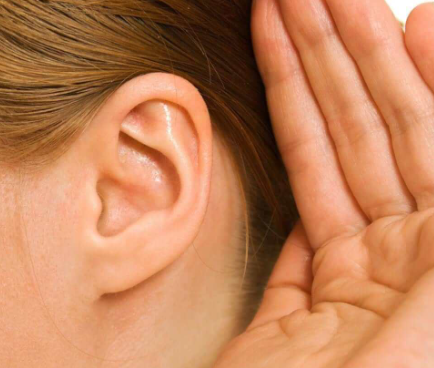Hearing Loss (Deafening)

Understanding Hearing Loss: Causes, Symptoms, and Treatments
Introduction
Hearing loss refers to the partial or total inability to hear sounds in one or both ears. It can occur gradually with age or suddenly due to an injury or illness. Hearing loss affects people of all ages and can significantly impact communication and quality of life.
Types of Hearing Loss
- Conductive Hearing Loss:
- This type occurs when sound cannot efficiently travel through the outer or middle ear, often due to blockages, fluid buildup, or damage to the ear structures. Causes include ear infections, earwax buildup, or a perforated eardrum.
- Sensorineural Hearing Loss:
- Damage to the inner ear (cochlea) or the auditory nerve can lead to sensorineural hearing loss, the most common type. It’s usually permanent and caused by aging, noise exposure, or genetic factors.
- Mixed Hearing Loss:
- A combination of both conductive and sensorineural hearing loss, where both the outer/middle ear and inner ear are affected.
Causes of Hearing Loss
- Aging (Presbycusis):
- Age-related hearing loss is common in older adults due to the gradual degeneration of inner ear structures over time.
- Loud Noise Exposure:
- Repeated exposure to loud noises, such as from concerts, machinery, or headphones, can damage the sensitive hair cells in the inner ear, leading to noise-induced hearing loss.
- Ear Infections:
- Chronic ear infections can cause fluid buildup or damage to the middle ear, leading to conductive hearing loss.
- Earwax Buildup:
- Excessive earwax can block the ear canal, causing temporary hearing loss that can be treated with cleaning.
- Ototoxic Medications:
- Certain medications, such as chemotherapy drugs or high doses of antibiotics, can damage the inner ear and cause hearing loss.
- Head Injury or Trauma:
- Injuries to the head or ear can damage the ear structures or auditory nerve, leading to hearing loss.
- Genetic Factors:
- Some people are born with genetic conditions that cause hearing loss or make them more susceptible to it as they age.
Symptoms of Hearing Loss
- Difficulty Hearing Conversations: Conversations, especially in noisy environments, may sound muffled or unclear.
- Frequently Asking for Repetition: Asking people to repeat themselves often or turning up the volume on devices.
- Tinnitus: Ringing, buzzing, or hissing sounds in the ears may accompany hearing loss.
- Difficulty Understanding High-Pitched Sounds: Struggling to hear high-pitched voices or sounds, such as children’s voices or alarms.
- Withdrawal from Social Situations: People may avoid conversations or social situations due to frustration with communication difficulties.
Home Remedies and Management for Hearing Loss
- Protect Ears from Loud Noises:
- Wearing earplugs or earmuffs in noisy environments can prevent further damage to hearing.
- Earwax Removal:
- If hearing loss is caused by earwax buildup, over-the-counter ear drops or professional ear cleaning can restore hearing.
- Avoid Ototoxic Medications:
- Talk to your doctor about alternatives if you’re on medications that may affect your hearing.
- Healthy Lifestyle Choices:
- Maintaining a healthy diet and avoiding smoking can promote ear health and reduce the risk of hearing loss.
Clinical Treatments for Hearing Loss
- Hearing Aids:
- Hearing aids are small electronic devices worn in or behind the ear that amplify sound for people with sensorineural hearing loss. They can be adjusted to individual needs and environments.
- Cochlear Implants:
- For severe to profound hearing loss, cochlear implants are surgically implanted devices that bypass damaged parts of the ear and directly stimulate the auditory nerve.
- Bone-Anchored Hearing Aids:
- A surgically implanted device that helps transmit sound vibrations through the bones of the skull for people with conductive or mixed hearing loss.
- Medications and Surgery for Conductive Hearing Loss:
- Treating ear infections, removing earwax blockages, or repairing damaged ear structures through surgery can help restore hearing.
- Assistive Listening Devices:
- Devices like amplified phones or TV listening systems can help individuals manage daily activities while accommodating hearing loss.
Alternative/Non-Invasive Treatments for Hearing Loss
For hearing loss, the therapies offered by Earl Claytont Wellness Centre that may support overall ear health and potentially help alleviate symptoms include:
- PEMF (Pulsed Electromagnetic Field Therapy):
- PEMF therapy can improve blood circulation to the inner ear, reduce inflammation, and support nerve function, which may help alleviate certain types of hearing loss, especially if related to nerve damage or poor circulation.
- NAD+ Therapy:
- NAD+ therapy supports cellular repair and regeneration, which may help protect against further hearing deterioration by improving the health of the auditory nerve and reducing oxidative stress in the inner ear.
- Vitamin B Complex:
- B vitamins, especially B12, are important for maintaining healthy nerve function, including the auditory nerve. A B Complex supplement may help support hearing by promoting nerve health and improving circulation, particularly if the hearing loss is related to a B12 deficiency.
These therapies may help manage hearing loss by supporting nerve health and improving circulation, though they are not a replacement for medical or audiological treatments. Depending on the cause of hearing loss, more specific interventions such as hearing aids or medical treatments may be necessary.
Discover the perfect treatment for you with a FREE MEDICAL ASSESSMENT! Limited slots available – secure yours now by scheduling an appointment. Click below to book now!
When to Seek Medical Attention
- Sudden Hearing Loss: If hearing loss occurs suddenly, especially in one ear, it may be a medical emergency, and immediate treatment is necessary.
- Tinnitus or Ear Pain: Persistent ringing, buzzing, or pain in the ear should be evaluated by a healthcare professional.
- Difficulty Understanding Speech: If hearing loss is affecting your ability to communicate or enjoy social interactions, a hearing test may be needed.
Conclusion
Hearing loss can be frustrating and isolating, but with proper diagnosis and treatment, many individuals can improve their hearing and maintain a good quality of life. Protecting your ears from loud noise, seeking early treatment for ear infections, and considering hearing aids or implants can help manage hearing loss effectively. If you suspect hearing loss, consult an audiologist for a thorough evaluation and appropriate care plan.

